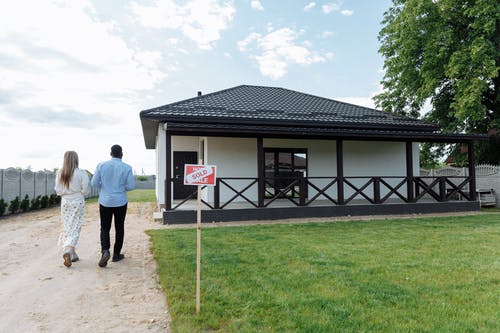Are you thinking about moving to San Clemente? It’s no surprise how this city has been attracting tourists for years now. This Orange County city is home to challenging surf breaks and sandstone bluffs.
Locals and visitors can’t get enough of the captivating sea views and lush green parks.
Knowing about the real estate trends of an area is key to finding your next perfect home. By having a vivid idea about San Clemente real estate marketing trends and head in choosing the neighborhood that suits you best.
San Clemente belongs to the many captivating suburbs in south Orange County. You can enjoy it in more ways than one. Start knowing more about this town through its many neighborhoods.
Walk a mile or more without traveling far. Pick a hiking trail in San Clemente and get ready for those captivating views as you go.
Befriend San Clemente’s real estate scene to your advantage. Start it by knowing more about the recently sold homes.
With more sunny days than the rest of the country, San Clemente is an instant piece of paradise.
Home to many academic wins, schools in San Clemente welcome learners of any level. Find the ones best for your needs here.
San Clemente Real Estate Trend
San Clemente has a median home value of $884,600. The City’s home value increased up to 4.5% over the past year.
A leading real estate and rental marketplace, Zillow, predicts that the median home value of San Clemente will rise to 2.2% within 2018. The San Clemente’s median list price per square foot is $451. This median list price is higher than Los Angeles-Long Beach-Anaheim Metro average of $412.
San Clemente’s listed homes have a median price of $1,149,000. The median price of sold homes in San Clemente is $851,300, and the median rent price is $3,400. San Clemente’s median rent price is higher than Los Angeles-Long Beach-Anaheim Metro median which is at $3,000.
In several years, foreclosures may become a factor that could impact home values. San Clemente has 0.3 per 10,000 homes foreclosed. This rate is lower than Los Angeles-Long Beach-Anaheim Metro value of 0.9. The rate of San Clemente foreclosure is lower than the national average of 1.6.
In the foreclosure process, mortgage delinquency is the first step. When the homeowner misses paying the mortgage, foreclosure is at bay. In San Clemente, there’s 0.5% of delinquent mortgages. This delinquent percentage is lower than the national average of 1.6%.
As the U.S. national house value falls by more than 20% from its peak in 2007 until their trough in late 2011, lots of homeowners are underwater on their mortgages. This situation means that they owe more than their home’s worth.
In San Clemente, there’s 0.0% of homeowners underwater on their mortgages. This rate is lower than Los Angeles-Long Beach-Anaheim Metro which rate is at 0.1%.
Important Questions to Ask Neighbors Before Buying
In finding your next home, looking for the right neighborhood can be taxing. The location of your prospect home is of utmost consideration. You may love everything about your home itself, but it’s not in the right neighborhood, it might better not cut. Before you decide about your dream home in your dream community, there might be some questions you haven’t ask and answered. Ask the most reliable source, the neighbors.
Who has a better grasp of the area than the people who live there? Below are the 5 insightful questions that might help you in determining whether your dream home belongs to the right neighborhood.
- “How would you describe the neighborhood, and what’s it like living here?”
This open-ended question lets the conversation flow. Most people may answer one of two ways. They might speak about everything they love or nag about everything they hate. By listening to the response of your future ‘neighbor,’ you may be able to gauge if the community is worth joining or not.
Remember that you may ask this question to more than one neighbor. Perspective and personal relations can differ. Ask around so you’ll have a vibe for the overall response from the people you could be living near.
- “If you could change anything about the community, what would you change?”
This question would be a proper follow-up for the first one if you got an overwhelmingly positive response. As you ask this question, you’re allowing potential drawbacks to emerge or other nuisances that might become a more prominent problem in no time.
Lack of parking and barking dogs can be too much of problems for you. Some things that bother others might not bother you at all. That’s relative. Either way, it’s better to have a perspective about how the neighbors see the community.
- “What are the schools in this neighborhood like and are some better than others?”
It’s a universal truth that school districts play a significant role in a community. Even if you don’t have kids, knowing about this factor is an ace. Living in a neighborhood with highly rated schools usually translates into higher values of the property. Families with children tend to want to be in the right district.
Lots of information about the school districts can be found online, but it won’t hurt hearing opinions from an experienced source.
- “How’s the socialization within the neighborhood and between neighbors?”
Whether you’re looking for a community that’s utterly social or not, it pays to know about the social life of your neighbors-to-be. You might be looking for new friends or choose a quiet and peaceful living. Knowing about the social aspect of the neighborhood lets you decide if you’re a good fit in the community before you move in.
- “Is there anything I should know about this property?”
Sellers are legally required to disclose specific data about the home, but neighbors might know something else. If the home you’re about to buy has run into problems, then the neighbors may know and openly speak about it.
The next time you have an open house, make sure to have some time to chat with the neighbors to get a complete perspective on the neighborhood and the home you’re interested in living in.
The city of San Clemente has specific zoning. If you’re considering to settle in one of the neighborhoods in San Clemente, knowing about the neighborhoods ahead of time is a good thing. Knowing about San Clemente Real estate marketing trends is another thing. Weigh the factors correctly, and you’re on your way to living a good life in San Clemente.






